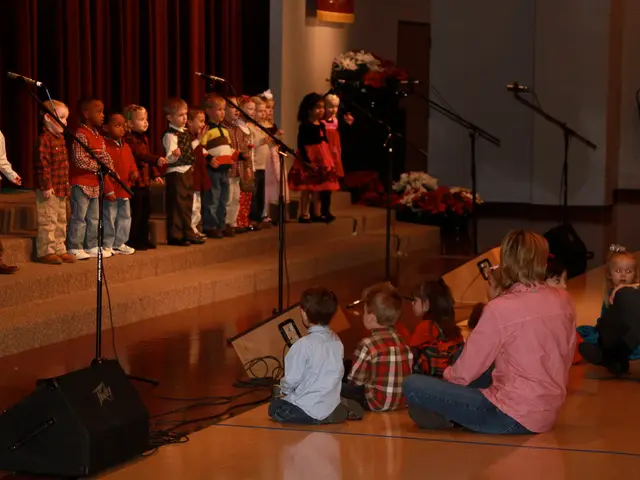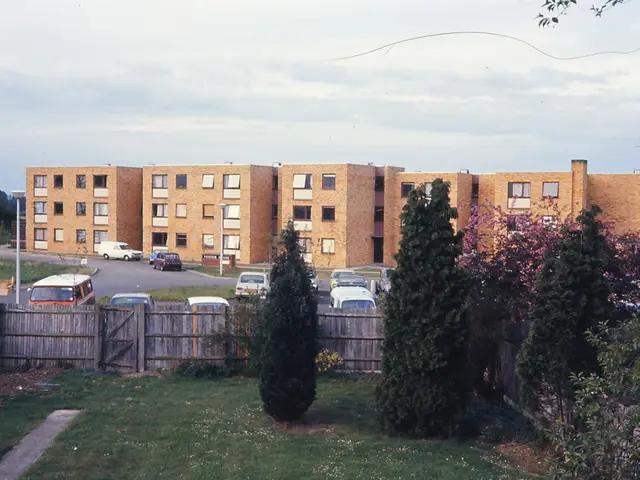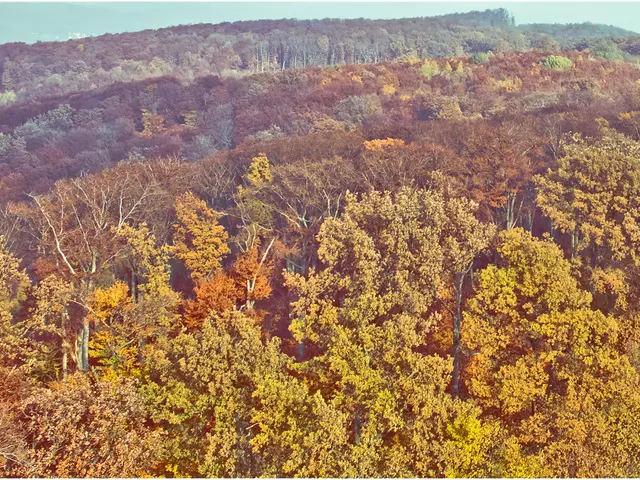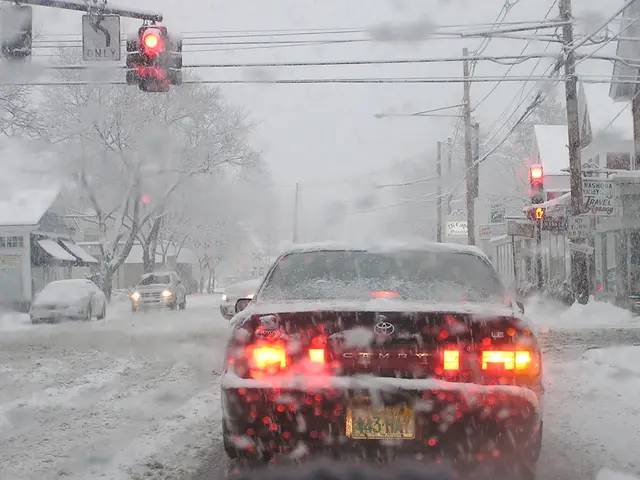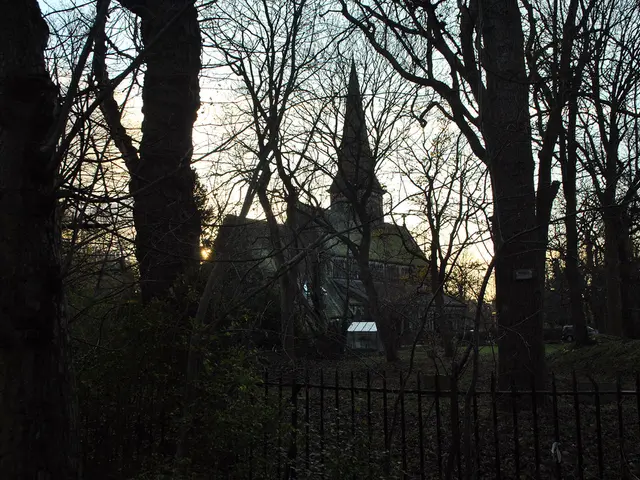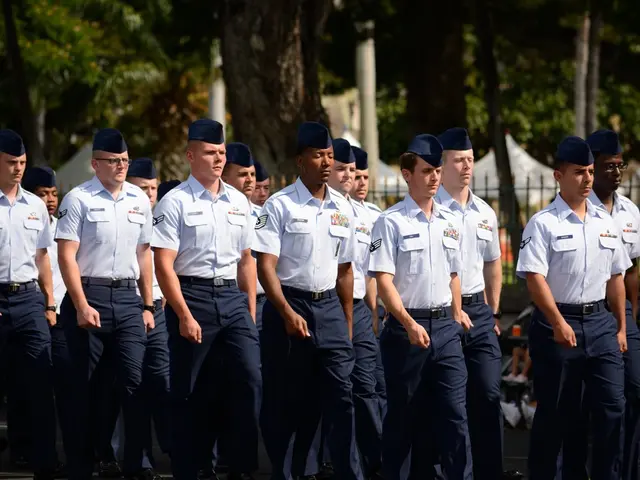Montreal takes action against school construction halt
Kickstarting 10 Sidelined School Projects in Montreal's Heart
Montreal is taking a stand, urging the Legault government to free up the funds required to resuscitate 10 school construction projects that have been left in the cold. The focus lies on three districts – downtown, Griffintown, and "the Triangle" near Namur metro, all currently devoid of public primary schools.
The Plante administration, backed by opposition councilors, is pleading with Education Minister Bernard Drainville to expedite the budgets for these long-awaited schools, which have been put on the back burner lately.
Robert Beaudry, responsible for urban planning, expresses frustration, stating, "While we understand Quebec’s budgetary challenges, they're canceling projects that were already underway. We have no visibility."
Montrealers are feeling the heat as they grapple with the confusion surrounding Quebec's school construction plans that have been announced and then paused, with a target completion date of 2025. Areas like Griffintown, along the Lachine Canal, and downtown's Peter-McGill district are still lacking primary schools despite repeated promises.
In Griffintown, the Plante administration is about to hand over a plot of land to the Centre de services scolaire de Montréal (CSSDM) for the construction of a 24-classroom primary school, a project that has been in the works for years. Moreover, Robert Beaudry announced plans to develop a playground adjacent to the future school, benefiting the entire community, not just students.
However, a similar sense of impatience permeates downtown, where the fate of proposed public schools in densely populated areas hangs in the balance. Three historic buildings – the Académie Bourget on rue de la Montagne, the Sisters' Grey Pavilion nearby, and the Grand Séminaire on the side of Mount Royal – have been suggested to house a school, but costs and complex transformation rules have sent the CSSDM packing. In a January 29, 2025, letter, the CSSDM confirmed that the Grand Séminaire project is facing major hurdles due to feasibility issues.
The site could contain Indigenous burial grounds, the school board notes. This isn't the first time archaeological excavations have been required – McGill University encountered a similar issue at the former Royal Victoria Hospital site. Access to the building for students would also be problematic.
Yet, the biggest challenge lies in Quebec City: the Legault government has frozen school projects downtown, including those in Montreal and beyond. "It's peculiar: we want to attract families back to the city, but there's no public school in the western part of downtown Montreal," sighs Serge Sasseville, the independent councillor for the Peter-McGill district.
Also read
- Investment of $13 million to revamp FACE school, slated for sale
- Questionable future of education and higher education with the unnerving budget
- Slashed renovations for schools despite the accumulation of surpluses
"Wealthy families can easily send their children to a school in this area. However, average-income citizens are forced to send their children far from home," adds the municipal councillor, who will not seek a new term in November.
A Thousand Homes, No Schools
The Côte-des-Neiges neighborhood near Namur metro is also grappling with uncertainty. Around 1000 households have settled here over the past decade, transforming the once industrial "Triangle" area into a sought-after residential one.
The government has approved the construction of a primary school in the Triangle, surrendered land, but nothing has materialized due to Quebec’s school construction freeze. A soccer field that once attracted athletes of all ages in the neighborhood had to be dismantled to make way for the future school. Since then, nothing.
Gracia Kasoki Katahwa, mayor of the Côte-des-Neiges-Notre-Dame-de-Grâce borough, expressed concerns, stating, "We need this school. Parents are firm: many will leave the neighborhood if there's no public school."
This neighborhood, known for its incredible diversity, welcomes thousands of newcomers each year. The mayor herself is a native of the Democratic Republic of Congo. “A public French-language school is an essential tool for integration. The government must help us integrate and francize new arrivals,” she says.
Municipal councillors are hard-pressed to develop new neighborhoods amid the housing crisis. The Triangle is a shining example of a sector revitalized by housing (social and private) and green spaces, minutes from a metro station, the mayor points out.
Councilor Sonny Moroz of the Ensemble Montréal party believes it's crucial to supply the neighborhood with a new school. He regrets that children are bused to a school outside the sector at a cost of $11,000 per year instead of walking to their neighborhood school.
"Modify the pace"
At the office of Education Minister Bernard Drainville, the need for new schools is acknowledged “everywhere in Quebec, in Montreal and elsewhere.” The escalating number of students is attributed “mainly to the high immigration rate.”
The school projects listed in the Quebec Infrastructure Plan (PQI) will be carried out, they emphasize. "The projects concerned are not cancelled, [...] but we must adjust the pace at which they advance."
While specific projects in Montreal, such as those in the Louvain Est and Faubourgs neighborhoods (PQI 2025-2035) and the Triangle (PQI 2019-2029), have been confirmed, the fate of the FACE school has been rocky. Despite being included in the PQI of 2019-2029, the school project was cancelled for financial reasons.
The Legault government maintains that it is addressing underfunding of previous governments in school buildings. In the past three years, over 100 schools have been opened, and more than 200 expansions completed. In Montreal alone, 9 new schools have been established, and 39 expansions have taken place, not to mention the acquisition of 12 buildings transformed into schools.
Recommended for you
- Quebec braces for a major winter storm
- Teachers and school establishment directors criticize the "pressure" generated by Bill 94
- Pénélope McQuade testifies in the Gilbert Rozon trial
Enrichment Data:The FACE School, located downtown, underwent renovation plans, but the project was postponed due to budget overruns. Initially budgeted at $150M, the renovation is now estimated to cost between $375M–$400M. Pupils will be relocated to 4835 Christophe Colomb (Plateau-Montréal) starting 2025–2026, while high school students shift to the former Baron Byng High School on St. Urbain Street in the coming years.
The Legault government is addressing the underfunding of school buildings, having opened over 100 schools and completed more than 200 expansions since 2018. The situation has attracted criticism from the Quebec English School Boards Association (QESBA), which voices concerns over insufficient infrastructure funding, particularly for urgent maintenance and new schools in high-demand areas.
- The FACE school, originally slated for renovation in downtown Montreal, has faced budget overruns and will reportedly cost between $375M–$400M, forcing the relocation of pupils to 4835 Christophe Colomb (Plateau-Montréal) from 2025–2026.
- In the political landscape of Quebec, concerns about education infrastructure continue to surface, with the Quebec English School Boards Association (QESBA) expressing worries over insufficient funding for urgent maintenance and new schools in high-demand areas.
- Acknowledging the need for school infrastructure everywhere in Quebec, Education Minister Bernard Drainville maintains that the projects listed in the Quebec Infrastructure Plan (PQI) will be carried out, albeit with an adjusted pace.
- Meanwhile, in the heart of Montreal, the Quartier de l'Île's housing sector, consisting mostly of students, is expected to grow significantly due to the planned FACE school's new location, indicating a growing demand for student housing within the city.

